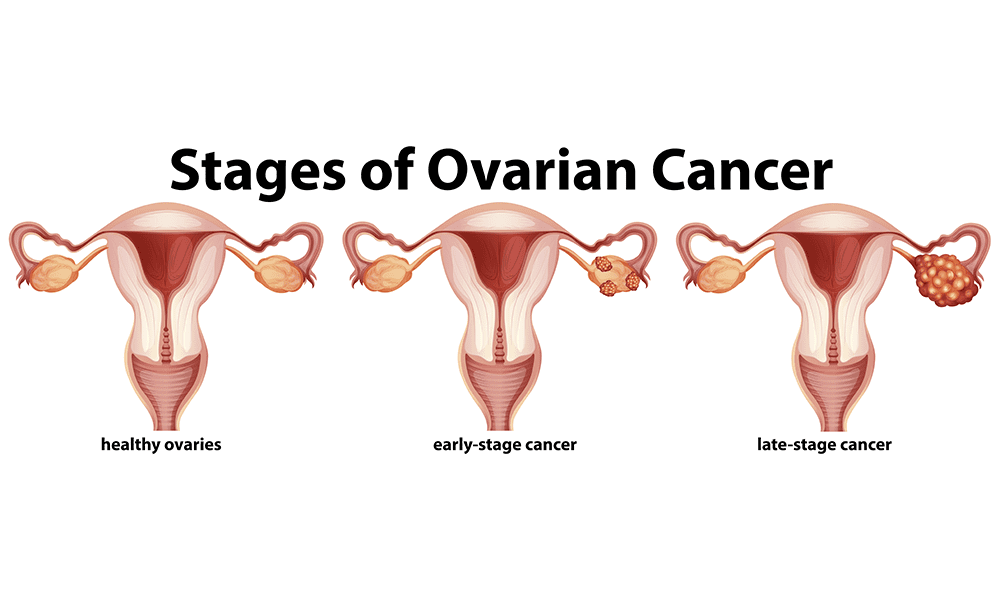Ovarian Cancer Crisis: Expert Calls for National Action
Dr. Muyideen Adelakun Urges Awareness and Better Care in Nigeria

A leading Consultant Obstetrician and Gynaecologist at General Hospital, Mushin, Dr. Muyideen Adelakun, has raised an urgent alarm over the growing threat of ovarian cancer in Nigeria. He is calling for a strong national response that focuses on raising awareness, improving diagnostic tools, and strengthening care for women affected by this deadly disease.
Ovarian cancer is a serious health issue worldwide. It ranks as the eighth most common cancer among women and the eighth leading cause of cancer deaths globally. In 2018 alone, about 300,000 new cases were diagnosed, leading to nearly 185,000 deaths. In Nigeria, it is the second most common gynaecological cancer, with an incidence rate of 30.5 percent, according to studies. It often affects women after menopause, especially those in their early 60s.
A Silent Killer in Nigeria
Despite its deadly impact, ovarian cancer is rarely talked about in Nigeria’s public health discussions. Many women and even healthcare providers are not fully aware of its dangers. This lack of awareness, combined with poor diagnostic facilities, means most cases are discovered too late. A 10-year study at Lagos University Teaching Hospital (LUTH) found that ovarian cancer made up 7 percent of gynaecological cancers and was the second leading cause of death among women in the gynaecology ward during that time.

Ovarian cancer starts when abnormal cells in the ovary grow out of control and form a tumor. If not caught early, it can spread to other parts of the body. Dr. Adelakun explained that it is the third most common gynaecological cancer globally and the second most common in Africa, after cervical cancer. What makes it so dangerous is that it is often found at an advanced stage because early signs are hard to notice.
“Most women present with general symptoms like constipation, abdominal bloating, loss of appetite, or rapid weight loss. These are easily mistaken for stomach or bowel issues,” Dr. Adelakun told reporters.
Why Early Detection Is So Hard
Unlike other gynaecological cancers like cervical or endometrial cancer, which often show clear signs such as abnormal bleeding, ovarian cancer develops quietly. Its symptoms are often confused with less serious problems, leading to delays in diagnosis. In many cases, the disease is only discovered during unrelated surgeries, by which time it may have already spread beyond the ovaries.
One big challenge is the lack of a reliable screening program. While cervical cancer can be detected early through Pap smears and HPV tests, no such standard test exists for ovarian cancer. Tools like the CA-125 biomarker and ultrasound imaging are used, but they are not always accurate. This makes early detection very difficult.
Systemic Challenges in Healthcare
Dr. Adelakun also pointed out deeper problems in Nigeria’s healthcare system that make the situation worse. Many women ignore early warning signs like bloating or constipation, choosing self-medication or traditional remedies over hospital visits. This poor health-seeking behavior, combined with underfunded hospitals and limited diagnostic equipment, creates a dangerous mix that often leads to late-stage diagnoses.
Risk Factors and Prevention Tips
On the causes, the expert highlighted both genetic and environmental risks. Women with a family history of ovarian, breast, or colorectal cancer face a much higher chance of developing the disease, especially if they carry the BRCA1 or BRCA2 gene mutations. For these women, he suggests considering preventive surgery, such as removing the ovaries (oophorectomy), between the ages of 35 and 40, particularly after they have finished having children.
He also raised concerns about the unsupervised use of ovulation-inducing drugs by women trying to conceive. These drugs increase ovarian activity and might raise the risk of cancer. Other possible factors include exposure to radiation and delaying childbirth, though no clear connection has been proven with specific foods or infections.
A Call for Action
To tackle this growing health crisis, Dr. Adelakun is pushing for a comprehensive plan. He wants more public awareness campaigns to educate women about the signs of ovarian cancer and encourage them to seek medical help early. He also calls for government support through policies and funding to improve healthcare facilities and develop better diagnostic tools specifically for this disease.
Conclusion: Building a Stronger Response
Ovarian cancer remains a silent but deadly threat to women in Nigeria, made worse by low awareness and limited healthcare resources. Dr. Adelakun’s urgent plea for a national response is a wake-up call for everyone—government, healthcare providers, and communities—to act. By prioritizing education, investing in better diagnostic tools, and supporting women to seek timely care, Nigeria can reduce the burden of this disease. As a nation, addressing ovarian cancer with the seriousness it deserves can save countless lives and protect the health of women across the country.
Stay woke. Stay tuned. Stay with AKEWE NEWS.




